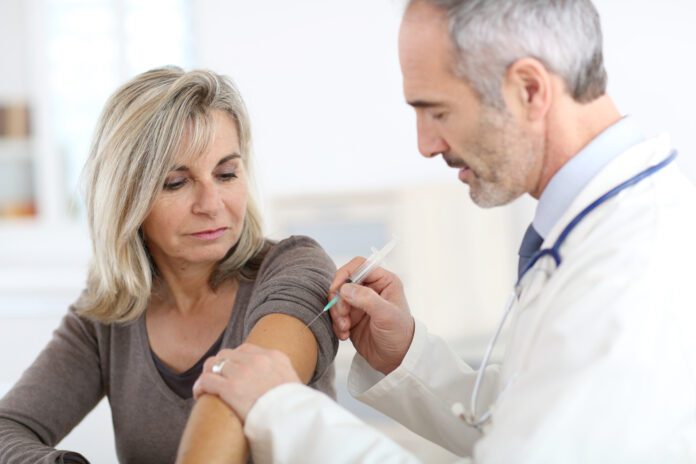Overview
Adult vaccines are necessary for a variety of different reasons. Sometimes, immunity gained from childhood vaccines can wear off with age. In other cases, some diseases strike at later ages than others. Lastly, new diseases are emerging all the time, and vaccines for new diseases are invented frequently.
Vaccination is safe, convenient, and effective at preventing a wide variety of diseases. Because of that fact, vaccination is one of the best preventative care measures available.
5 Vaccines Recommended For Adults
• Hepatitis vaccines
• Annual flu vaccines
•Tetanus booster vaccines
•Shingles vaccine, after a certain age
Reasons For Adult Vaccination:
• Immune protection from childhood vaccines can wear off with time. Because of that, people may need additional doses of specific vaccines over time.
• Some viruses, like the flu virus, can change rapidly. As a result of that, people should get the flu vaccination every year.
• Some people may be at an increased risk for disease based on their job, how much they travel, and what pre-existing health conditions they may have. Consequently, some may be recommended vaccines that others won’t need.
• New vaccines for emerging (recent) diseases happen all the time, and many times adults need them just as much as young children.
• Some vaccines are recommended only for adults, given that they’re at risk for specific diseases that only attack certain age groups. For example, the vaccine for the shingles virus is only recommended for adults.
Other Information About Adult Vaccines
Make sure to meet with or speak to a health care provider before vaccination.
Some people can’t be vaccinated — or they may need to wait before getting one. Before vaccination, inform the health care provider if the person being vaccinated:
- Has any allergies, especially if they’ve had any serious reactions to vaccines in the past
- Are currently ill with an infection, or are otherwise unwell
- Are currently pregnant or planning to get pregnant in the near future
After the vaccination appointment
Most people have minor side effects after vaccination, if any side effects at all. Examples of mild side effects include:
- Redness, swelling, or pain at the injection site
- Fatigue
- Chills
- Joint and muscle aches
- Mild fever
- Headache
Some steps for minimizing discomfort from mild side effects exist. For example:
- If the injected arm is sore, moving it around can help with pain and swelling.
- Putting a wet and cool washcloth on sore areas can help with pain.
- Staying hydrated is important – be sure to drink lots of fluids.
- Patients can use non-aspirin pain relievers, so long as they consult a health care provider beforehand.
Serious or severe side effects from vaccinations are very rare. If you or someone you know experience any concerning symptoms immediately after a vaccination, contact a health care provider immediately.



